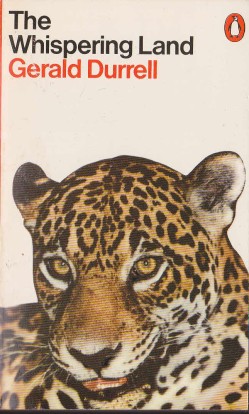On Thursday, I spoke at length about a fantasy book, or at least a book set in a world that never existed, which is as good a definition of fantasy as one might give. The interesting thing about Gormenghast, though is that the book never felt as much like I was escaping the real world as it did that I was navigating a maze that never truly let me forget the outside universe.
When you think about it, it’s strange that a fantasy book of that stature finds it hard to create the escapist objective of literature while the very next book I read, a non-fiction work, immediately plunged me into fantasyland and made all my troubles disappear–for a time.

Of course, a world where one is free to roam about and collect animals for one’s private zoo is actually much more of an escape than one that talks about mad rulers. And, besides, Gerald Durrell was a better writer than Mervyn Peake (and most of today’s socially conscious genre writers are worse than both).
When you take both these factors into consideration, The Whispering Land is one of those books that transports you to the wonders of a simpler time. Yes, it’s based on the assumption that the British Empire is a civilizing force, and yes, if you tried to create something as barbaric as a zoo today, you’d get lynched by the ecologists, but both of those realities, far from offending, make the book even better, as they are so gently couched as to be wonderful as opposed to antisocial.
To be completely honest, I wasn’t expecting to enjoy this one as much as the incredible The Bafut Beagles and A Zoo in my Luggage, mainly because the book was set in Argentina in the 1960s, which, to my mind is a much less interesting and exotic locale than Africa in the 1950s could ever be. Though a bit far away to be familiar to most, Argentina is essentially similar to southern Europe, if the poor were a bit more poor. It’s not a truly exotic locale.
But Durrell’s wonderful writing and uncanny knack for finding kernels of wisdom and wonder even in the mundane, combined with the fact that he was actually spending time well on the fringes of the country, in the cold, desolate, penguin-infested coasts of Patagonia and the northern jungles make this one nearly as good as his African classics. Even the foibles of third-world corruption are cheerfully presented as facts, and become quirks to be smiled at as opposed to anchors dragging down nations.
Seen from the perspective of the twenty-first century, Durrell’s work becomes the preemptive counter-strike and perfect library partner to Notes from a Small Island, in the sense that Bryson looks and Britain from an outsider’s perspective while Durrell looks at the rest of us from a distinctly British point of view. And yes, he is well aware that that point of view is eccentric as hell, made more so by his insistence on running a private zoo.
At the risk of gushing I’ll just close with my recommendation: buy anything by Durrell you can get your hands on and read it. If something therein offends you the problem is yours (have a doctor check you for an over-inflated sense of outrage and underpowered capacity for whimsy), and if you can’t lose yourself in his mid-century world, then you need to try to remember what wonder feels like.
Gustavo Bondoni is an Argentine author whose latest book is a collection of 22 short stories set in places far from the First World. It’s called Off the Beaten Path, and you can check it out here.